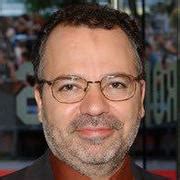A Quote by Henry Louis Gates
I would like to do a series about sequencing the human genome, and also analyze more human diversity among other ethnic groups - a 'Faces of America 2.'
Related Quotes
I think all races are represented in America much more than in many other places, but it's also nice to remind people about that ethnic mix. I would like to see more black models and women from different ethnic backgrounds, but I also think that when you are casting, you just choose the most beautiful girl you can find.
There's always a question when you invest. Are you too early, are you too late, or are you just right? And there was a lot of hype about life sciences, around the sequencing of the human genome and a lot of people concluded that's not really there. But by the way, there was a lot of hype around the digital revolution just about the time of 2000 and the human genome, and it turns out that some of the world's biggest, most powerful companies are the survivors post that crash.
The question is, are there useful things that we can do with the results of a genome sequence that would bring benefit? And the answer is, today, should the majority of people go and have their genome sequenced? Probably not. But are there particular circumstances in which genome sequencing is really helpful? Yes, there are.
Enforced by genetics, sexual reproduction, perspective, and experience, the most manifest characteristic of human beings is their diversity. The freer an economy is, the more this human diversity of knowledge will be manifested. By contrast, political power originates in top-down processes-governments, monopolies, regulators, and elite institutions- all attempting to quell human diversity and impose order. Thus power always seeks centralization.
Every cell in our body, whether it's a bacterial cell or a human cell, has a genome. You can extract that genome - it's kind of like a linear tape - and you can read it by a variety of methods. Similarly, like a string of letters that you can read, you can also change it. You can write, you can edit it, and then you can put it back in the cell.
I think that there is a middle-class desire, and maybe an almost universal desire, among many human beings to live in clean neighborhoods, among people like themselves, around people with whom they feel comfortable. That can be exclusive, it could be exclusionary. It could be racist, classist, genocidal, and so on. Most people like comfort. Now what provides a sense of comfort varies. I do think that people who like living in cities like small-scale human interaction and they like the social dimensions of aesthetic diversity that Jane Jacobs wrote about.
As a Christian, but also as a scientist responsible for overseeing the Human Genome Project, one of my concerns has been the limits on applications of our understanding of the genome. Should there be limits? I think there should. I think the public has expressed their concern about ways this information might be misused.




































